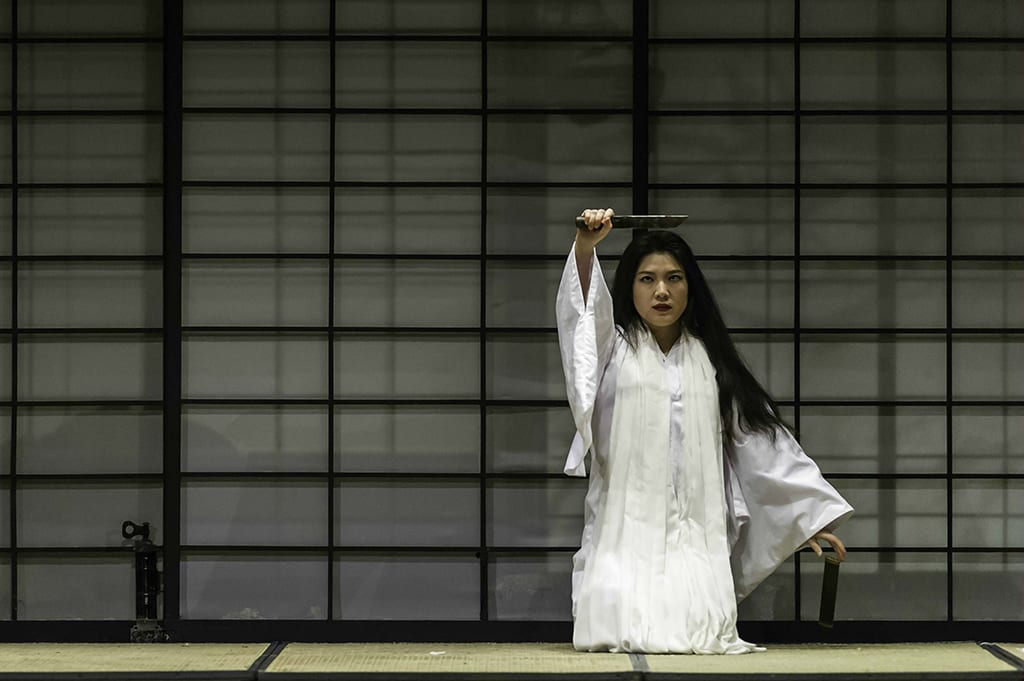Welsh National Opera has revived their classic Joachim Herz production of Madam Butterfly, first seen in 1978. Although when it was first mounted, it was considered a ground-breaking version of the opera, it now seems a very solid and conventional reading of the famous story of the innocent Japanese girl clinging to the “marriage” that her American lover considers to be temporary, to be renewed (or not) on a monthly basis. Though it says nothing new, the production still has the musical and dramatic power to move audiences to tears – there were certainly many damp eyes as the curtain fell in Cardiff on the first night of this effective revival.
The set is simple and all that changes between the three scenes is the configuration of the sliding panels of the simple house Lieutenant Pinkerton rents as his love nest on the hill behind Nagasaki. The fragile house is set beneath a frame of tree branches in browns and beiges and, although it is a picturesque setting, one longs for a little colour – even the flower scene fails to make a visual impact.
Pinkerton’s lack of respect for the cultural traditions of Butterfly and her Japanese family is well portrayed in the opening wedding scene as he labels her servants ‘Mug 1, 2 and 3’ and calls the food and drink served disgusting. American tenor Jonathan Burton, who plays Pinkerton (as dictated by the director’s vision) as a charmless and ignorant bully, sings the role with style and uses his fine voice to best effect in his duets with Butterfly. Sad to say, the audience boo-ed him like a pantomime villain at his curtain call – this increasingly common phenomenon is a very unfair way to reward a singer’s performance.
This is an opera for which the impact very strongly rests on the performance of the artist playing Butterfly and, in Korean soprano Karah Son, we had a singer who is specialising in this demanding role. In the early scenes, she seemed a little tentative and under-powered but as the story developed she came into her own – the moments of high drama in the second act were rich and her voice took on a bell-like clarity that thrilled. The contrast between a mature and corpulent Pinkerton and a Butterfly who really did look the tiny and fragile 15 year old described in the libretto was a very effective way to emphasise the underlying brutality of the plot.
David Kempster as Sharpless sang superbly but didn’t quite make the consul’s inability to tell Butterfly that Pinkerton has betrayed her trust credible – he seems to know that Pinkerton’s behaviour is leading to disaster but never has the gumption to intervene effectively. Perhaps this is Puccini’s problem – all the male characters in this opera seem weak and unable to face up to the consequences of their actions. Rebecca Alonwy-Jones as Butterfly’s maid, Suzuki, is another of WNO’s cadre of fine Welsh singers and she plays her as a sister rather than a servant, an approach that pays dividends. The immensely experienced conductor Lawrence Foster delivers a competent rather than inspiring reading of the score but the orchestra string section sounded on particularly good form.
This is a fine Butterfly and tells the story of exploitation and betrayal clearly and movingly – it only needs a touch more passion in the music to make it a wonderful production.

